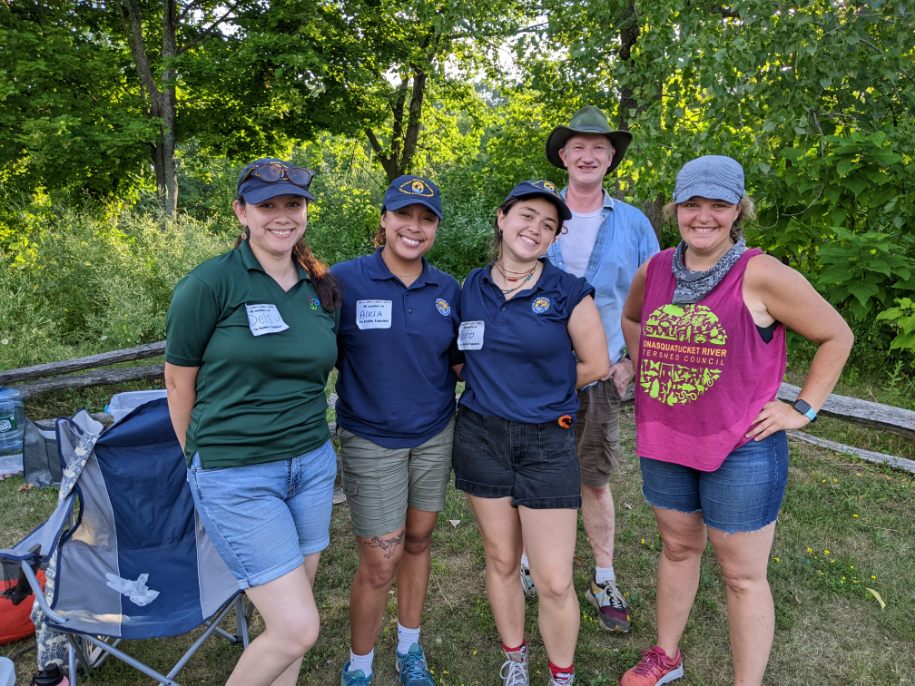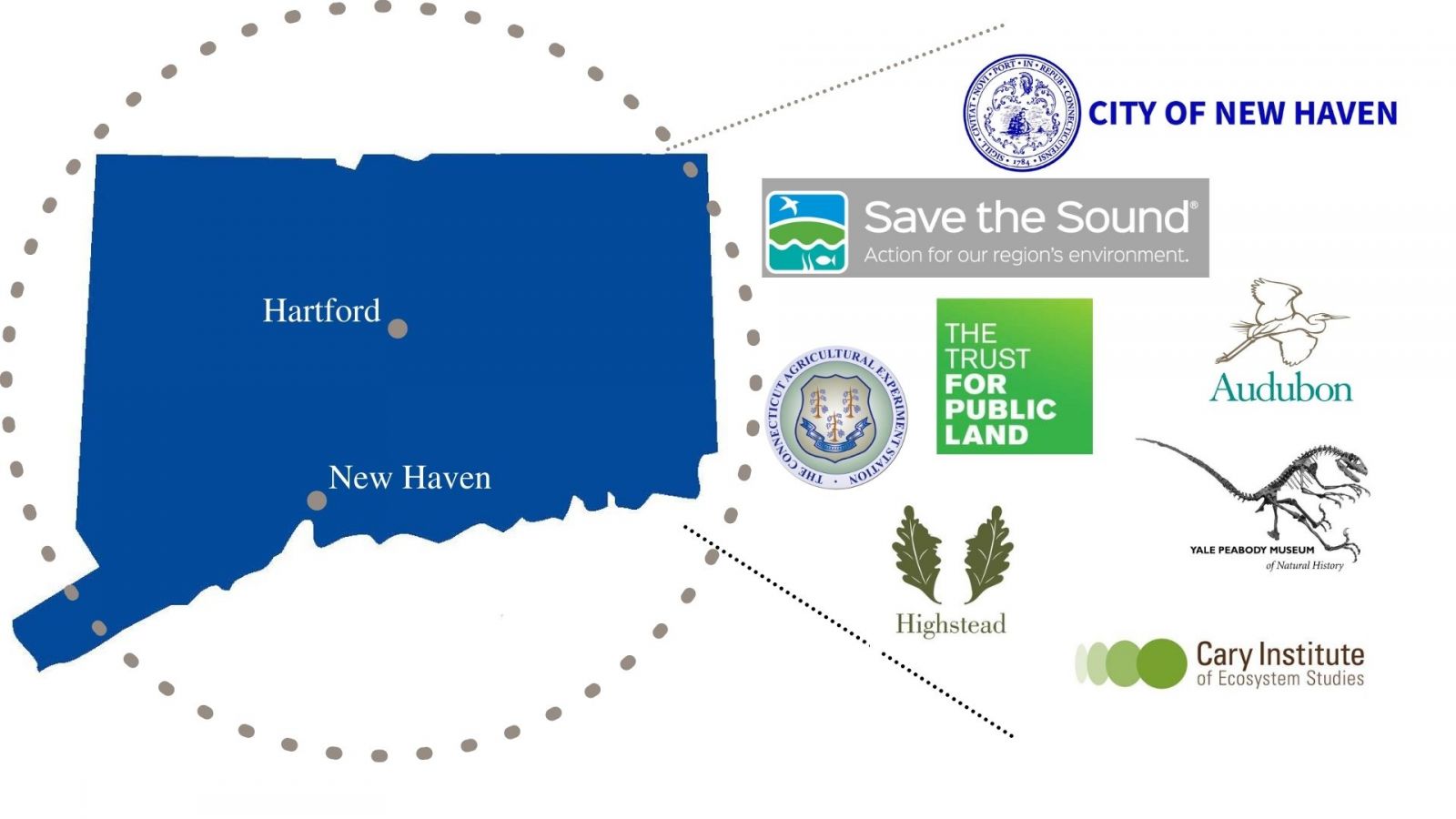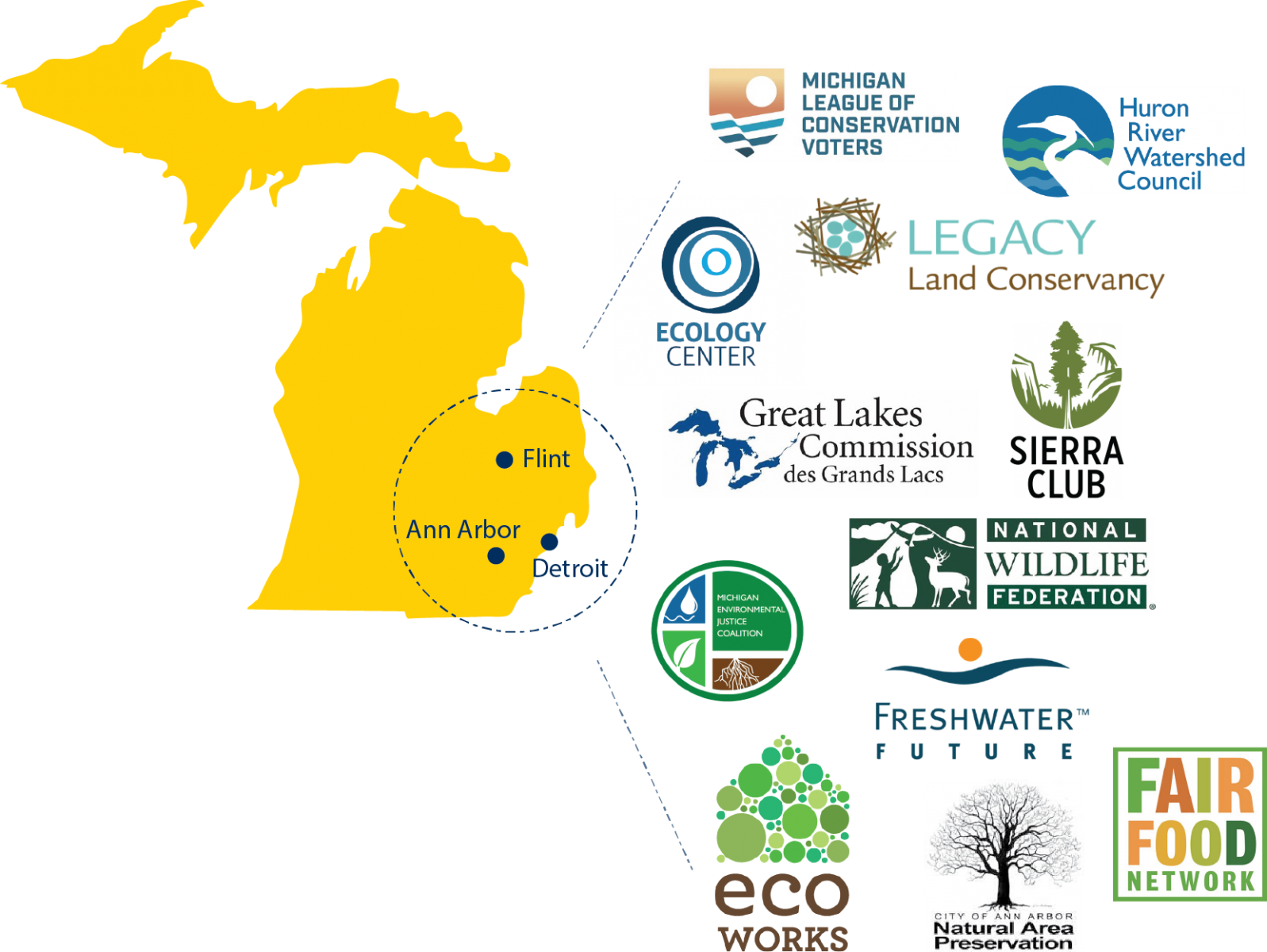The Internship Program
Scholars complete a nine-week internship in a research laboratory, at a field site, in an environmental nonprofit or governmental agency. The nonprofits vary in size from local grassroots organizations to national and international institutions. Similarly, scholars have interned at local or regional government offices or with federal agencies.
Scholars work directly with and are mentored by professors, research scientists, and environmental professionals during and after the internship. Program participants also develop networks with each other, program alums, and environmental professionals.
In 2026, internships will be primarily based in the northeast in states such as Connecticut, New York, Massachusetts, and Rhode Island. Internships have expanded to the Midwest and DMV including Michigan, North Carolina, and Washington D.C. At the end of summer, scholars make presentations about their summer experiences at the Annual Capstone Symposium.
A select few scholars will have the opportunity to return for a second year as a peer mentor. They will intern in a different organization, laboratory, or field site than in their first summer. Past internships have focused on conservation research, environmental policy, conservation finance, environmental education, environmental justice, energy justice, water pollution, food insecurity, community action, and much more!
Environmental organizations interested in hosting a scholar may reach out to program staff at ycs-eli@yale.edu

2022 YCS-ELI Scholar Alicia Lundy (second from left) at a community with her team as part of her summer internship with the United States Fish and Wildlife, Rhode Island office. Photo Credit: Alicia Lundy
The Work Week
The duration of the internship is 9 weeks from May to July. Scholars work at their internship site four days per week (Monday-Thursday for a maximum of 32 hours per week. In addition, scholars spend each Friday in professional development webinars, sessions with speakers, workshops, and mentors. Scholars will spend eight hours per week on these activities.
Select Past Internship Sites*
*Please note: Internship sites change year to year, and previous sites are not guaranteed in the following years.


Host Placements as of 2025
| American Rivers | Maryland Department of Natural Resources |
| Audubon Center at Bent of the River | Maryland Environmental Service |
| Baltimore Office of Sustainability | Matthaei Botanical Gardens and Nichols Arboretum |
| Bent of the River Audubon Center | Meriden Conservation Commission working in conjunction with CT Association of Conservation and Inland Wetlands Commissions [CACIWC], CT DEEP and local environmental groups. |
| Black Appalachian Coalition | Meriden Natural Resources Inventory in collaboration with Quinnipiac River Watershed Association |
| Cary Institute of Ecosystem Studies | Michigan Environmental Justice Coalition |
| Chesapeake Bay Program | Michigan League of Conservation Voters |
| Choose Clean Water Coalition | Michigan Sea Grant |
| Connecticut Agricultural Experiment Station | Mystic Aquarium |
| Citizens Campaign for the Environment | Mystic River Watershed Association |
| City of Ann Arbor - Sustainability & Innovations | Narragansett Bay National Estuarine Research Reserve |
| City of Ann Arbor- Natural Area Preservation (NAP) | National Audubon Society / Sharon Audubon Center |
| City of Baltimore - Department of Public Works | National Oceanic and Atmospheric Administration Great Lakes Environmental Research Laboratory (NOAA) |
| City of Cambridge | National Wildlife Federation - Great Lakes Regional Office |
| City of New Haven - Food System Policy Division | Natural Resources Defense Council |
| CitySeed | New York City Department of Parks and Recreation - Division of Environment and Planning |
| Clean Energy Coalition | New York City Parks |
| Climate Refugees | NOAA Fisheries Greater Atlantic Regional Office |
| ClimateHaven | NYC Department of Parks and Recreation (NYC Parks) |
| Color My Outdoors | OpenAQ |
| Connecticut Coalition for EJ | Potomac Riverkeeper Network |
| Connecticut Forest & Park Association (CFPA) | Remote Ecologist |
| Earth Day Network | Rhode Island Department of Environmental Management |
| EARTHDAY.ORG | Rivers Alliance of Connecticut |
| Ecology Center | Rock Creek Conservancy |
| EcoWorks Detriot | Save the Sound |
| Environmental Control Board/BMORE Beautiful | Schuylkill Center for Environmental Education |
| Environmental Defense Fund | Sharon Audubon Center |
| Fair Food Network | Sierra Club Michigan Chapter, Great Lakes Great Communities |
| Farm at St. Joe’s | Solar Youth |
| Farmington River Watershed Association | Stamford Museum and Nature Center |
| Freshwater Future | The Center for Enviromental Justice at the Anacostia Community Museum |
| Great Hollow Nature Preserve & Ecological Research Center | The Maritime Aquarium at Norwalk |
| Great Lakes Commission | The Nature Conservancy Connecticut |
| Green Village Initiative, Inc. | The Nature Conservancy Rhode Island |
| Greenpeace USA | The Ocean Project |
| Greenwich Audubon Center | The Trust for Public Land |
| Groundwork Bridgeport, Inc. | U.S. Fish & Wildlife Service - Rhode Island National Wildlife Refuge and Southern New England Coastal Program |
| Groundwork Hudson Valley | U.S. Fish and Wildlife Service - Southern New England Coastal Program |
| Groundwork Rhode Island | U.S. Fish and Wildlife Service - Pennsylvania Field Office |
| Growing Hope | University of Michigan Museum of Natural History |
| Harbor Watch, a Program of Earthplace, Inc. | USDA Natural Resources Conservation Service (NRCS) – Soil Survey Office |
| Hartford Food Systems | USFWS, John Heinz National Wildlife Refuge at Tinicum |
| Highstead Foundation | Washtenaw County Health Department |
| Huron River Watershed Council | Washtenaw County Water Resources Commissioner’s Office |
| Interstate Commission on the Potomac River Basin | Waterkeepers Chesapeake |
| Keney Park Sustainability Project | Yale Peabody Museum of Natural History |
| Legacy Land Conservancy | Connecticut Agricultural Experiment |
| Lenape National Wildlife Refuge Complex |